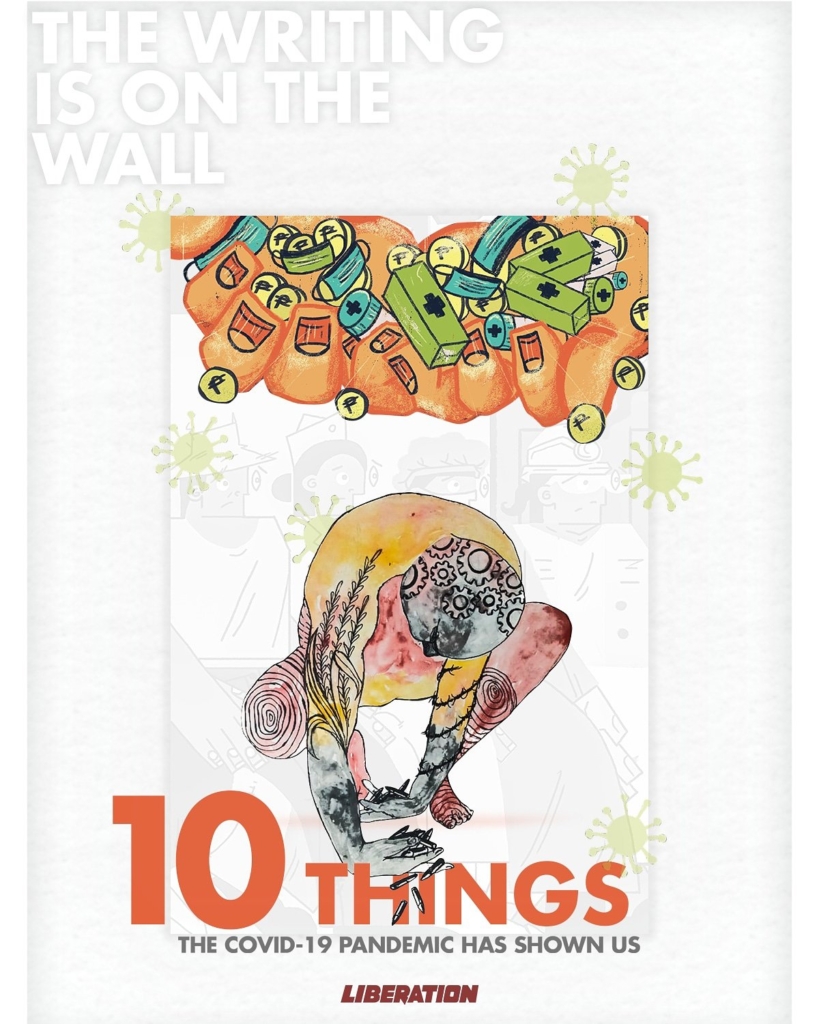The Duterte regime is ending its term heavily reviled for bungling the containment measures to the pandemic. Its failure or criminal negligence is systemic—it is as bureaucrat capitalism does.
Before and during the pandemic, its actions exposed it as “the starkest representative of the evils of imperialism, feudalism and bureaucrat capitalism,” as a statement of the Communist Party of the Philippines put it. Indeed, even under the COVID-19 pandemic, the Duterte regime imposed anti-people and neoliberal policies that blatantly favor the big bourgeois compradors, the big landlord class, and foreign big capitalists. These policies have been repeatedly proven to worsen the socio-economic conditions of the people, making the people more vulnerable to crises.
To push and reap benefits from such unjust policies—amid the growing resistance and revolutionary struggle of the people—Duterte showed what his regime, the no. 1 terrorist in the Philippines, can do. A few months into the pandemic, in July 2020, his regime put into effect the ‘anti-terror law,’ seeking to impose a de-facto martial law all over the country and employ the armed forces and police to instill fear among the people. The Duterte regime milked the pandemic to continue securing kickbacks from foreign contracts and loans. It incurred more loans at a faster pace and blatantly sold the country’s sovereignty. As the foremost representative of bureaucrat capitalists, the tyrant Duterte consistently showed how power is used to serve the narrow self-interests of his clique in and out of the bureaucracy.
No wonder the Duterte regime responded to the pandemic as follows:
No vision, no plan. Faced with a health and social crisis, the regime’s response was at best disorganized and messy. It has neither a plan nor the political will to genuinely come up with measures on how to protect the country and the people from the pandemic and its impact on the lives and livelihood of the people.
No sense of urgency, no focus. In addressing the peoples’ needs, the regime acted without a sense of urgency. Yet, it acted quickly when it sought self-serving licenses, such as the congressional stamp to grant the President emergency powers through Bayanihan 1 and 2. The bureaucratic red tape coupled with ineptness and corruption was a monster stronger than the virus to those in need, as seen in the slow and chaotic distribution of relief goods, the Social Amelioration Program or SAP, and later, the procurement and roll-out of the vaccine.
No sense of responsibility and accountability. For all the government’s failed and disastrous responses, it swiftly tossed the responsibility and accountability to the masses, peddling the pasaway (undisciplined, hard-headed) narrative—the urban poor who went out to earn during the quarantine, the workers who squeezed in themselves in limited buses and trains, the jeepney drivers who protested to get back to work. If need be, local government units who bore most of the burden and the low-ranked employees of departments were called to task, shamed, or even threatened.
Meanwhile, when the people acted together to help each other, the Duterte regime was quick to demonize, ride on, or try to sabotage it. It red-tagged relief and health drives, community pantries, and people’s demands for genuine aid, relief, and responses to the pandemic. This regime’s most shameless evasion of responsibility to the crises was to peddle lies and shift the public’s attention to the revolutionary groups CPP-NPA-NDF.
“No money” is an oft-quoted excuse yet trillions of pesos acquired through loans are at the disposal of the Duterte regime. Also, even lawmakers conceded during budget hearings that it was not that there’s no money. The priorities just lay elsewhere.
For example, the Duterte administration dragged its foot in procuring vaccines. It allotted just a pittance for vaccines. There was only Php 2.5 billion guaranteed budget for vaccines, much of the boasted (higher) amount of up to Php 82 billion for vaccines were under conditional or “waiting list” funds. It means the budget may never be available. Instead, the current national budget guarantees funds for Duterte’s corruption-filled infrastructure projects, more money for fascist troops, and tax cuts for big businesses.
The criminal negligence of the Duterte regime on the pandemic was a display of the bankruptcy and rottenness of bureaucrat capitalism. Haunted and shaken by the consequences of the crimes it has committed, it resorts to all-out fascism in a vain attempt to maintain itself in power against the challenge of armed revolutionary struggle and the legal, democratic mass movement.###

